Belgium and Romania share their nuclear research knowledge
A breakthrough for SMR technology and major European research infrastructures
Two memorandums of understanding between Romania and Belgium were recently signed in the presence of Belgian Prime Minister Alexander De Croo and Romanian Prime Minister Nicolae Ciucă. They were signed by the Belgian Nuclear Research Centre SCK CEN and two Romanian research institutes, the Horia Hulubei National Institute of Physics and Nuclear Engineering (IFIN-HH) and the Technologies for Nuclear Energy State Owned Company (RATEN). These agreements will accelerate research into SMR technology and facilitate access to two major European research infrastructures, MYRRHA in Belgium and ELI-NP in Romania.
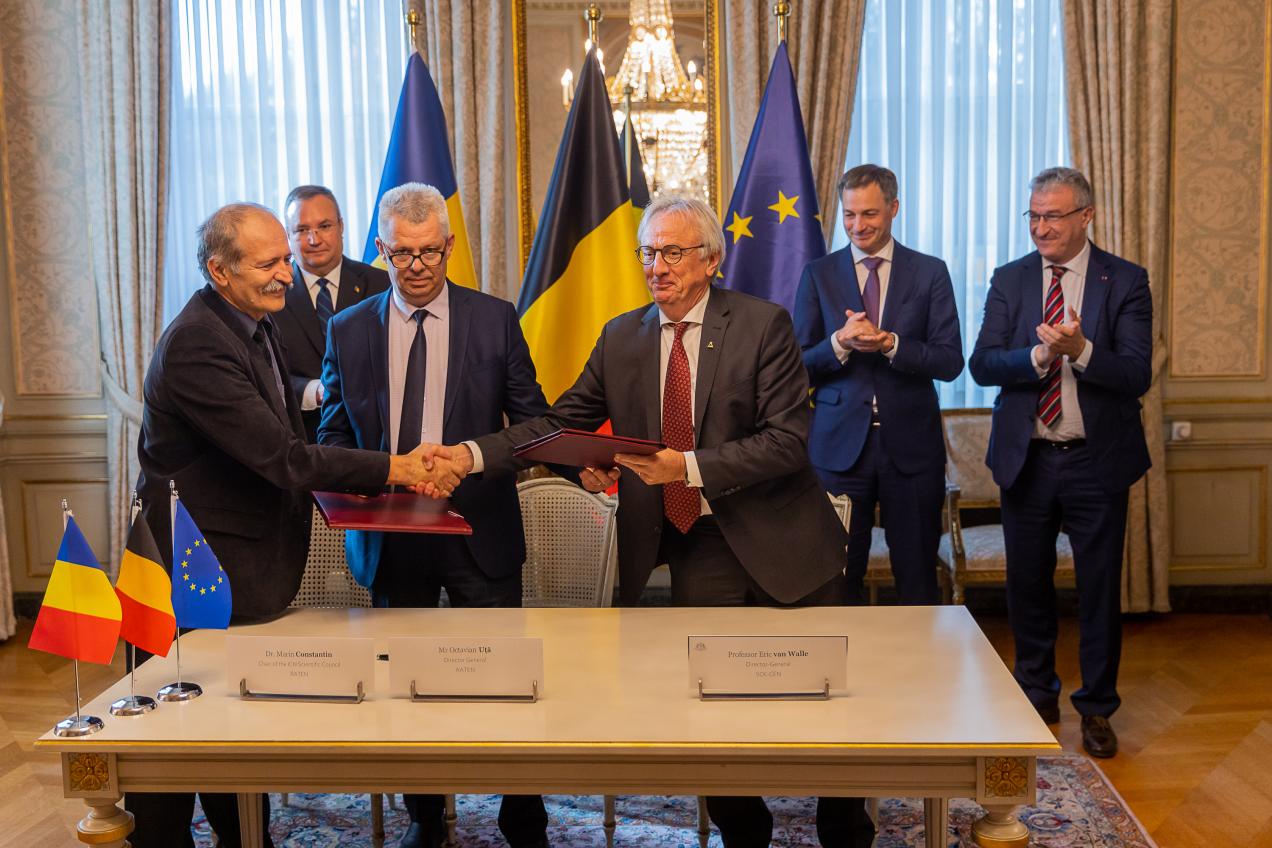
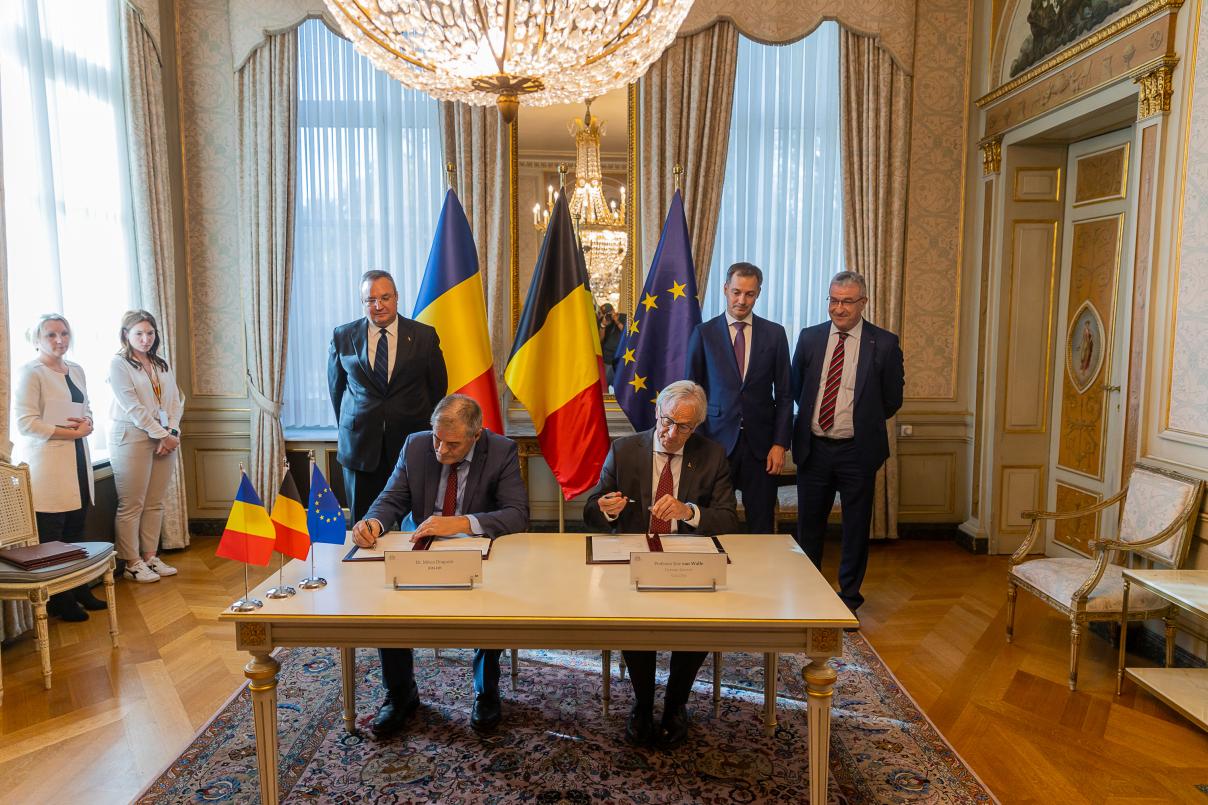
The first agreement, which provides for cooperation between two large, unique and complementary research infrastructures, will lead to major advances in nuclear physics, SMR technology, nuclear waste and nuclear medicine in Europe. The first is MYRRHA (Multi-purpose hYbrid Research Reactor for High-tech Applications), an accelerator-driven system (ADS) coupled to a lead-bismuth cooled subcritical reactor under construction in Belgium, and the second is the ELI-NP (Extreme Light Infrastructure for Nuclear Physics) of IFIN-HH.
The second agreement was signed with the RATEN Institute, which is developing the ALFRED (Advanced Lead-cooled Fast Reactor European Demonstrator) project, an industrial initiative whose objective is to build a fourth-generation European demonstrator of a small modular lead-cooled reactor (SMR) in Romania. Coupled with the expertise acquired at SCK CEN in the MYRRHA project, this project increases the number of European countries that are taking SMR-LFR technology to an industrial scale. The two institutes are committing to exchanging their technological knowledge and future developments to accelerate the deployment of an industrial demonstrator.
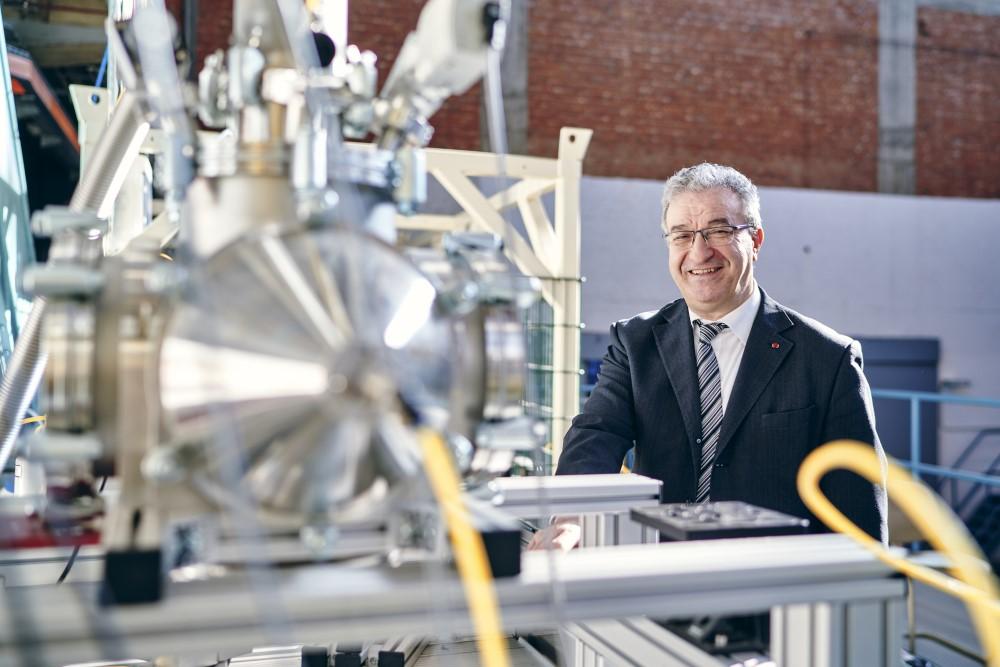
MYRRHA is the world's first accelerator-driven research reactor and was designed to provide guaranteed knowledge and expertise in the fields of nuclear safety and nuclear materials research for fission and fusion. It is within this infrastructure that innovative medical radioisotopes will be produced for both the diagnosis and treatment of certain cancers. But MYRRHA is also a research project that will show that it is possible to reduce the toxicity and volume of high-level nuclear waste through the transmutation process, further optimising geological disposal.
This collaboration between Belgium and Romania is a sign of a desire to maintain leadership in fundamental and applied nuclear research in Europe, from physics to biology, from nuclear science to life sciences, from medical isotopes to the processing of nuclear waste and the advent of nuclear energy technology for the future beyond the sole production of electricity.
Belgium began the construction of MYRRHA in Mol in 2018. To create MYRRHA, Belgium invited the participation of other countries through an international non-profit organisation, MYRRHA AISBL founded in 2021.
"The skills acquired in Belgium thanks to the development of the MYRRHA project now allow major Belgian players such as SCK CEN, the Federal Agency for Nuclear Control (FANC) and Tractebel Engineering to play a leading role in SMR-LFR."
Participation in MYRRHA would allow Romania to reduce the volume and radiotoxicity of its high-level nuclear waste and thus reduce the footprint of its nuclear history. In the meantime, a joint Belgium-Romania task force is evaluating Romania's participation in MYRRHA and Belgium's participation in ALFRED/ELI-NP. The results of this evaluation are expected in spring 2023.
Related articles
 22 March '24
22 March '24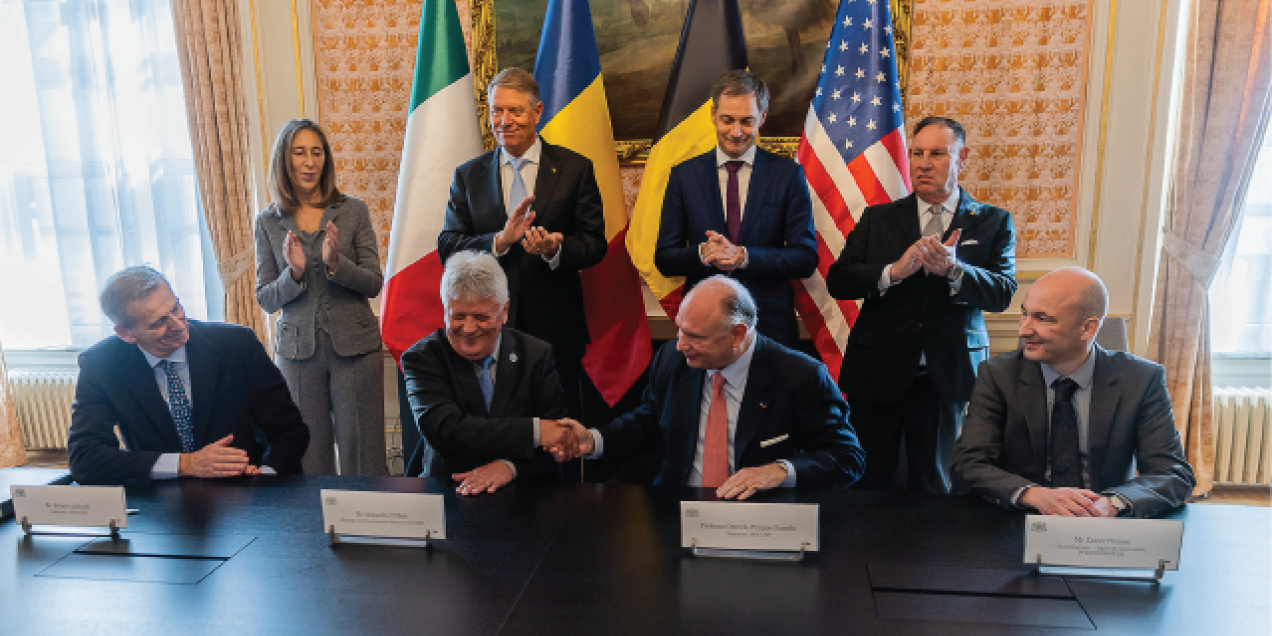 08 November '23
08 November '23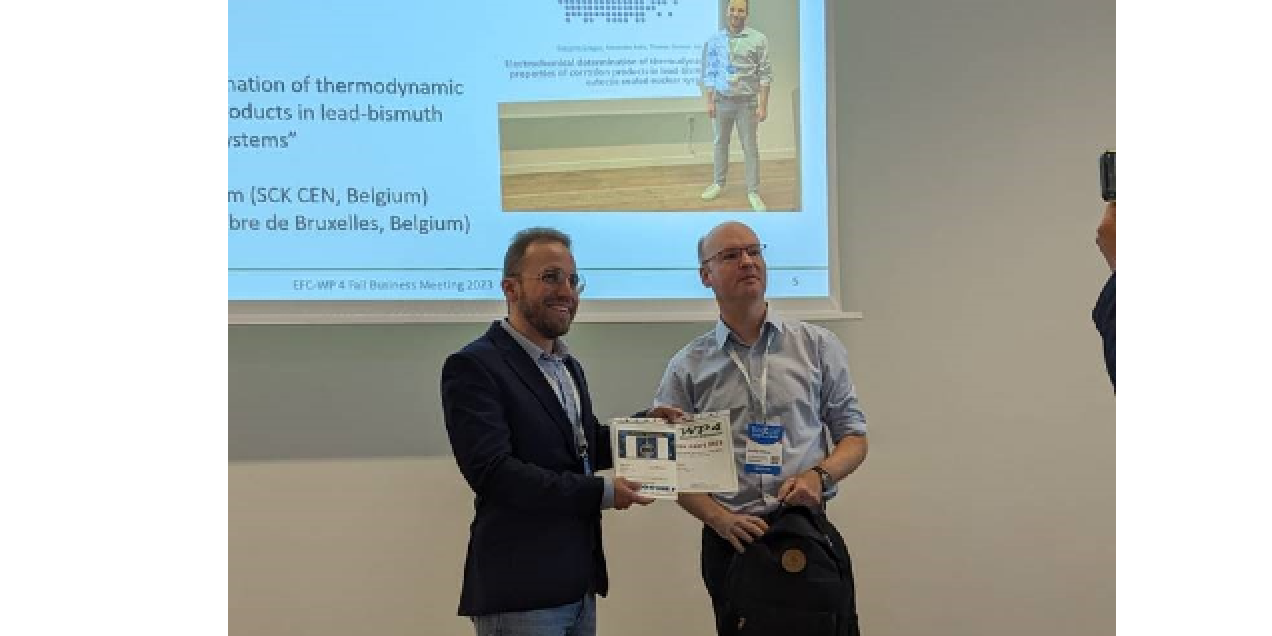 01 September '23
01 September '23